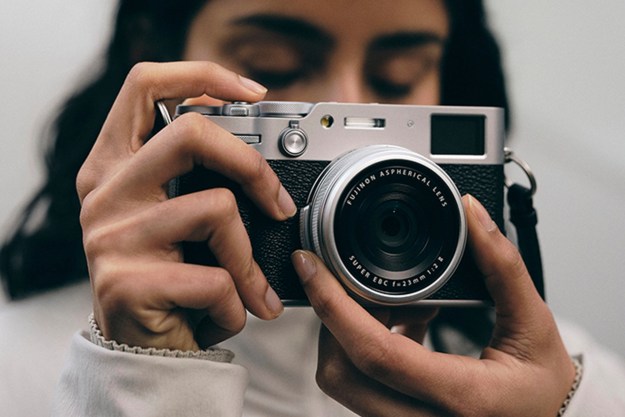Yesterday, we talked about a new iPhone accessory lens that gives you an artsy look to your photos. Here’s another add-on lens, but, instead of creative effects, it’s more scientific. With the new Micro Phone Lens, which is currently being crowdfunded on Kickstarter, you can turn your smartphone into a microscope that captures magnificently magnified views of super tiny things. Unlike most other smartphone accessory lenses, this one isn’t your regular photographic lens that happens to feature a close-focusing macro mode. The Micro Phone Lens offers a staggering 150x magnification, which rivals full-fledged laboratory microscopes.
The tiny lens adhesively attaches to any smartphone or tablet lens, and, with the light source and specimen slides provided, turns any mobile device (with a sensor that resolves at least 5 megapixels) into a real microscope. To make achieving sharp images really simple, the lens is focused by pushing the slide containing the specimen slightly against it. The video below demonstrates how the Micro Phone Lens works on a tablet computer’s front camera.

The Micro Phone Lens was created by University of Washington graduate Thomas Larson, and is the result of more that two years of work that included the creation of a first, less powerful lens with 15x magnification. Besides seeking funding to produce the lens in significant numbers, Larson also has the vision that his Micro Phone Lens will be used at home to get kids excited about science; in schools so every student can have their own microscope; and as a portable device for field research or simply in places where cost or portability are a concern. The biggest draw could be its affordability.
Currently, the lens features a resolution of 2 microns, which Larson hopes to get down to about 1.5 microns in the final production version. In order to achieve this goal, Larson originally sought $50,000 in funding for his project, which the campaign has already surpassed, with another 15 days to go. This goes to show that there is an actual interest in his product.
If you could see yourself using the Micro Phone Lens in order to teach your kids about how a cell is structured, or just for the fun of it, you can still pledge. A $29 fund will buy you the lens and a small carrying case, while for $39 you’ll also get a portable LED light which you need to properly illuminate your specimen. Add 10 more bucks, and you’ll also get six prepared specimen slides plus 10 more to fill with specimen of your choice. The campaign continues through Friday, April 18, 2014.
(via dpreview Connect)


